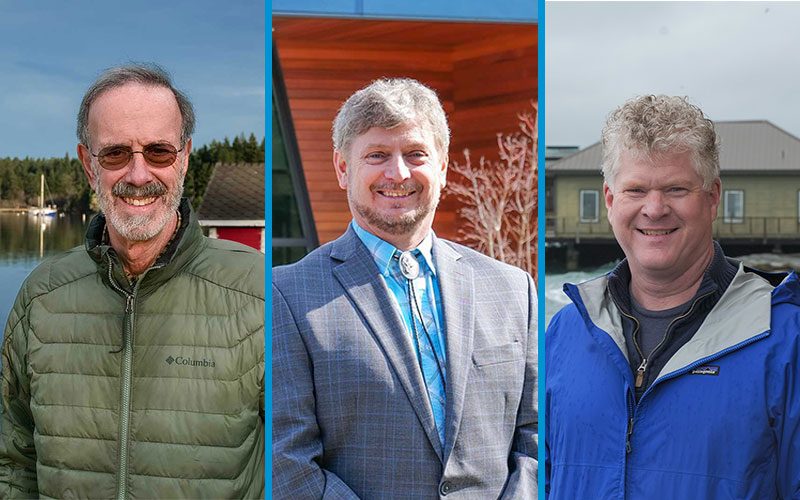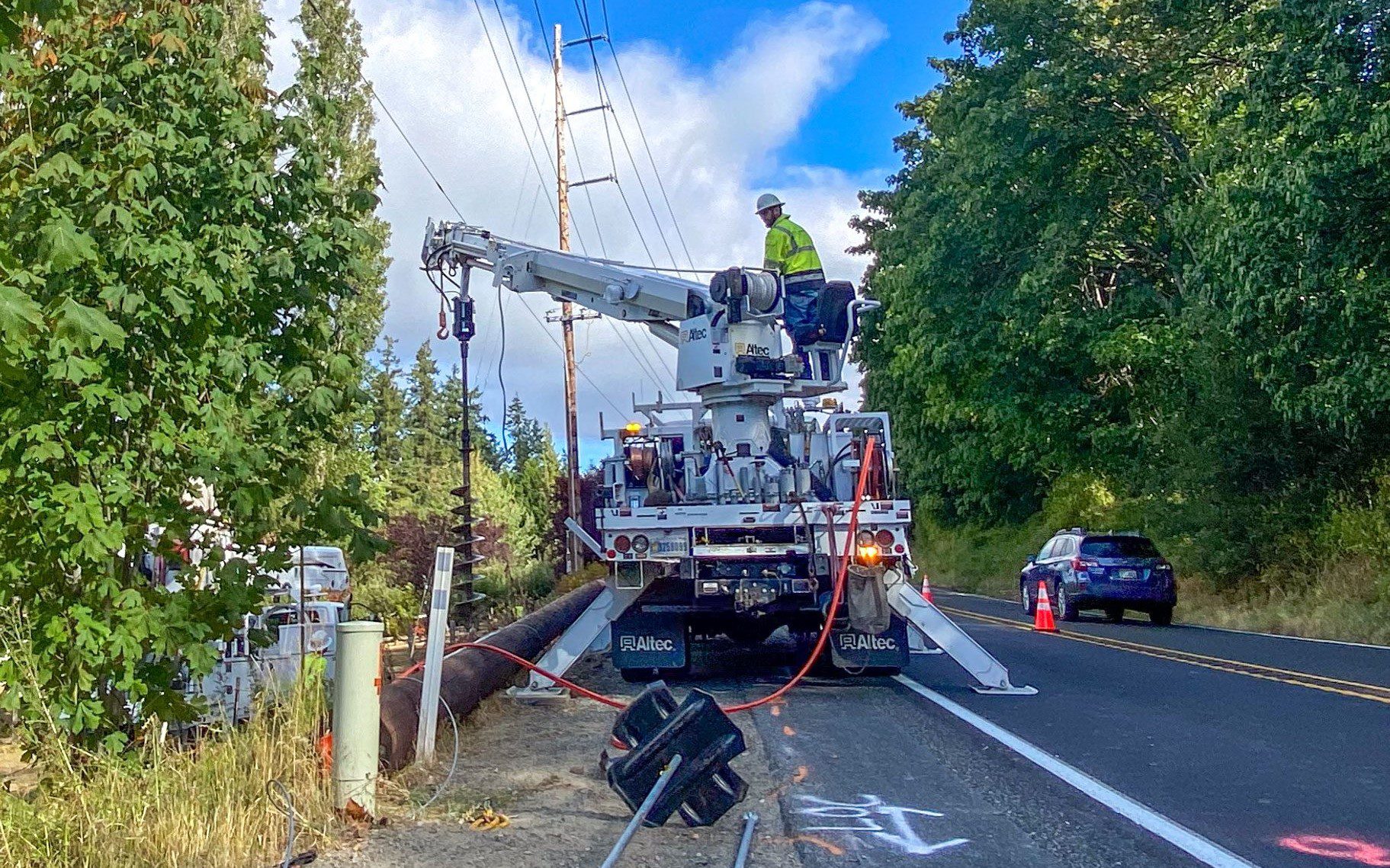Public Utility Districts (PUDs) are nonprofit, locally regulated utilities created by a vote of the people to “conserve the water and power resources of the State of Washington for the benefit of the people thereof, and to supply public utility service, including water and electricity for all uses.” A voter-approved initiative first authorized the creation of PUDs in 1930. Since then, 28 PUDs have been formed to serve communities across Washington State.
History Of Jefferson County PUD No. 1
Jefferson County Public Utility District No. 1 was founded in 1939 as part of the Grange movement to electrify rural communities in WA state. However, Jefferson PUD did not enter the utilities business until 1981, when it acquired its first water district in the community of Gardiner. More water systems followed, as did community drain fields for septic systems. For more than 25 years following that acquisition, Jefferson County PUD operated as a small water and septic district with less than ten employees and a budget of $2 million dollars or less.
In 2008, the citizens of Jefferson County approved a ballot measure authorizing the PUD to pursue the acquisition of the county’s electrical grid from the privately held Bellevue-based Puget Sound Energy (PSE). Skagit and Island counties had similar propositions on the ballot, but only Jefferson’s succeeded. Why? In part it was because Jefferson County was a small community at the far end of PSE’s service territory, and PSE did not spend the resources it spent in those other larger counties to fight the proposition.
But it was also because many Jefferson County residents felt the quality of electrical service and reliability had declined after PSE outsourced its line crew services to Sumner-based Potelco in the early 2000s and consolidated its customer service outside of the county. Many residents were equally dismayed when, in 2007, PSE, a Bellevue WA based business for over 50 years, sold to an international consortium based out of Australia.

In 2010, after 2 years of negotiations, the PUD and PSE came to a purchase agreement of $103 million dollars for Jefferson County’s electrical system and all of its assets. In order to pay for that purchase, the PUD applied for and received funding from the USDA’s Rural Utility Service (RUS) program, borrowing $115M total to cover capital improvements and start up expenses as well as the agreed purchase price.
Resource Manager Bill Graham described 2010 as a year when the planets aligned for the PUD “When we were approved to borrow the money from the USDA to purchase the system, interest rates were at an all time low. And the Bonneville Power Administration (BPA) had capacity to take us on as a new Tier 1 customer, which very often they don’t,” said Graham.
BPA power also meant cleaner power. At the time of the purchase agreement in 2010, more than 60% of PSE’s power was generated by non-renewable, carbon emitting coal or natural gas plants. Publicly owned, full service BPA customers have access to power that is primarily (80% or more) generated by hydroelectric dams on the Columbia River. Hydropower is local, renewable, and carbon-free. To balance its supply of power throughout the year, the BPA also purchases around ten percent of its power from the nuclear reactor at the Columbia Generating Station in the Tri-Cities. Other small amounts of power comes from either wind, solar, gas, coal, or other generating facilities. (Learn more here).
In April of 2013 the PUD took over operation of the grid, becoming the first public agency to take over a private system in WA in more than 65 years. Over the last 6 years the PUD has grown from 8 to 50 employees, and serves over 19,700 electric customers and 5,000 water and septic customers on operating budget of approximately $50 million per year
In 2019, the PUD began work to expand its 310 Four Corners Road operations and customer service facility. The remodeled and modernized office reopened following the pandemic and brings together the entire customer service and billing team in one location.
In 2022 the PUD obtained the former Mobilisa Building in Port Townsend at 191 Otto Street. Purchase of the 191 Otto building offered much needed office space for the growing utility, as well as a network home for JPUD’s new broadband team. The PUD’s expansion of service offerings in the fiber internet field have frequently been compared to the Rural Electrification movement of the 1930’s in terms of impact it can have on county residents. The ability for JPUD to become a broadband internet provider stems from legislation passed in 2021 allowing utilities to be retail providers due, in part, to the necessity for high-speed internet for online work during the pandemic. More than $55M in grants countywide provided the foundation for rural broadband growth.
The PUD board of commissioners approved the purchase of the former AP&T Building adjacent to the 191 Otto Street building on May 13, 2024. 193 Otto provides additional office spaces and acts primarily as an administrative facility.







